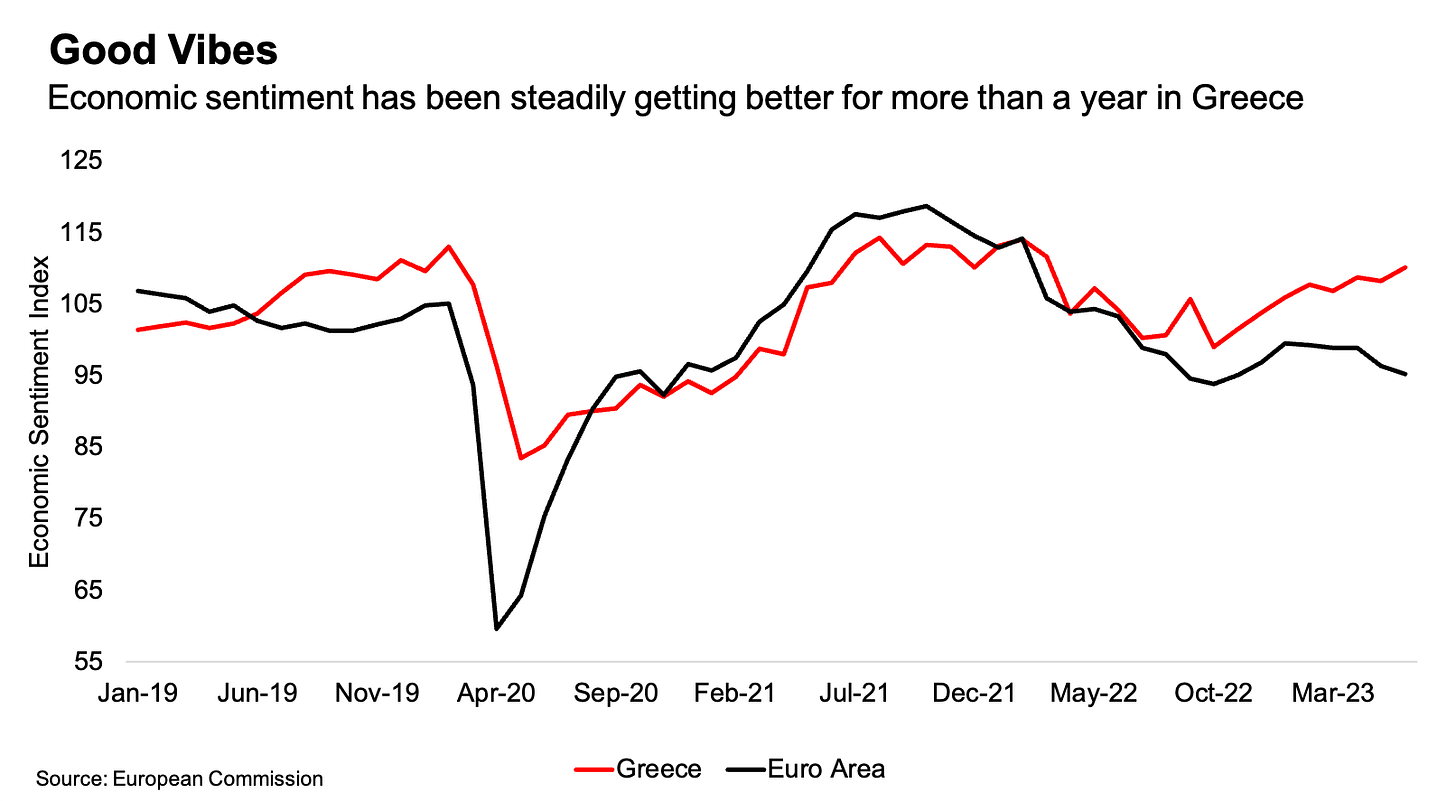Macro roundup: Temperature check
Greek economic sentiment is on an improving trend
Greek economic sentiment improved in June and is widening the gap with the euro-area average, where the economic slowdown is damping animal spirits.
This month was also the first time in five months that consumer confidence and overall economic sentiment — which also takes into account surveys of several business sectors — both increased.
I’m usually wary of reading too much into the sentiment indicators, partly due the difficulty in quantifying “animal spirits”. This applies even more so when it comes to comparing different country readings across the eurozone, however much they are supposed to be comparable.
Nevertheless, it's worth checking in on the indicator every once in a while to gauge how moods are shifting and how well the reading fits with the picture presented by more “hard” macroeconomic data.
And the reading does fit that picture, with Greece’s economic growth currently outperforming the euro area. With the exception of a few months at the start of the pandemic, when economic sentiment in Greece deteriorated less than the euro-area average, the gap is currently the biggest since 2008, before the country’s fiscal crisis.
Still, June’s economic sentiment reading of 110.1 is below the 113 recorded in February 2020, just before the pandemic started to have an impact on economic confidence. Only construction and services confidence is higher now than levels reached in the 14 months before the first lockdown.
Other data
Greece’s unemployment rate dropped to 10.8 percent in May from a revised 11.3 percent the month before.
Building activity in March, as measured by the number of permits issued, increased 34.2 percent from a year earlier.
Measured by surface area, building activity grew 68.9 percent, while by volume it increased 70.2 percent.
Permits issued in the first quarter increased 13.6 percent from a year earlier.
Bank lending to the private sector grew an annual 3.1 percent in May, down from 3.9 percent the month before.
Net lending flows in the month contracted 275 million euros, the second month of declining net lending.
Lending growth to non-financial corporations slowed to 6.7 percent from 8.7 percent in April.
Private sector deposits at Greek banks increased by 794 million euros to 186.4 billion euros in May.
Retail sales increased 1.5 percent from a year earlier in April, following a drop of 0.3 percent in March.
Volume decreased 5.2 percent, after a drop of 8.7 percent the month before.
Next week’s key releases
Monday, July 3:
June manufacturing PMI (S&P Global)
Wednesday, July 5:
May interest rates on bank deposits and loans (Bank of Greece)



